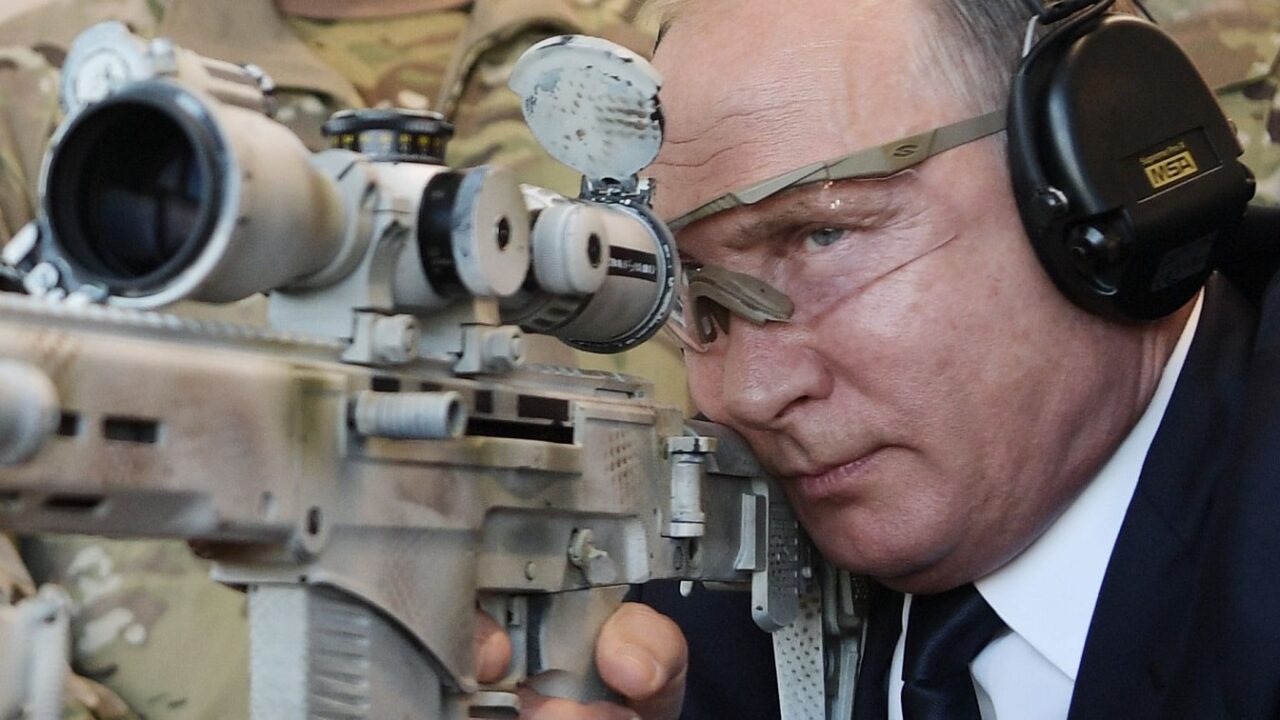Russian President Vladimir Putin just declared martial law in four illegally annexed Ukrainian territories: Zaporizhzhya and Kherson provinces, and the so-called Luhansk and Donetsk “people’s republics.” Why did he do it and what does martial law entail?
Why Martial Law?
As to the first question, the answer is obvious. Russia is losing the war with Ukraine, as Russian troops are being pushed back from the territories they occupied after the invasion began on February 24. In particular, the Ukrainian Armed Forces appear to be on the verge of recapturing that part of Kherson province which is situated on the west bank of the Dnipro River. Russian administrators and civilians have already begun what appears to be a mass evacuation to safer terrain on the east bank. Putin obviously hopes that declaring martial law will somehow help him stop or slow down the Ukrainian advance and enable him to retain control over the areas he still occupies.
Just how might martial law help?
For starters, it will have no effect whatsoever on actual conditions on the battleground, where the Russian army has consistently demonstrated remarkable incompetence. Nor will it affect Russia’s genocidal bombardment of Ukrainian civilians and civilian targets. What martial law primarily does is what the Russian occupational authorities already do: enable them to crack down on dissent and political activity, mobilize resources for the war effort, pursue genocide, and engage in systematic rape. In a rogue country that acts illegally both at home and abroad, the fact that martial law technically legalizes ongoing repressive measures is pretty much meaningless.
But martial law does permit the authorities to introduce and intensify certain repressive and mobilizational measures:
1) “Objects of economic, social, and cultural importance” may be moved, while civilian populations may be resettled in “safe areas.” Expect the Russians to dismantle factories and plants and ship them to Russia as well as to engage in the ethnic cleansing of the occupied territories by resettling Ukrainians in Russia.
2) “Citizens” may be drafted for labor in support of defense, to help with emergencies, and so on. Expect the Russian authorities to grab civilians off the streets and force them to work without pay in dangerous sectors of the occupied territories.
3) The “property of organizations and citizens” may be “taken” for defense needs. Expect the occupying authorities to confiscate, steal, and purloin everything they can lay their hands on. Expect corruption and contraband activities to flourish.
4) People may be stopped and searched “whenever necessary.” Expect harassment of civilians to increase, thereby increasing their incentive to acquiesce in deportation to Russia.
Naturally, Putin would disagree with this assessment. Instead, he probably believes that such a mass mobilization of resources and people in defense of Mother Russia will lead to victory. The likelihood of that, however, is about as great as the ability of Hitler’s Volkssturm—the “people’s storm” mobilization of young and old, men and women in armed units in the last months of the war—to stop the Red Army in the east and the Allies in the west.
Will these measures help the authorities fight the burgeoning Ukrainian underground resistance movement? Only inasmuch as they will have legalized extant repressive measures—which is to say, no.
In the final analysis, the imposition of martial law will do little to nothing to stop the Ukrainian armed forces and the Ukrainian guerrillas. It will only add a legal veneer to Putin’s genocidal policies and enrich his cronies in the army and secret police. In that sense, martial law may even hasten the degradation of Russian rule in Ukraine.
President Biden’s assessment was on the mark: “I think that Vladimir Putin finds himself in an incredibly difficult position. And, what it reflects to me is, it seems his only tool available to him is to brutalize individual citizens in Ukraine, Ukrainian citizens, to try to intimidate them into capitulating. They’re not going to do that.”
Will Ukrainians even consider capitulation in light of Putin’s growing desperation? Will they let martial law change their strategy vis-à-vis Russia and the occupied territories? The questions are rhetorical, of course.
Dr. Alexander Motyl is a professor of political science at Rutgers-Newark. A specialist on Ukraine, Russia, and the USSR, and on nationalism, revolutions, empires, and theory, he is the author of 10 books of nonfiction, including Pidsumky imperii (2009); Puti imperii (2004); Imperial Ends: The Decay, Collapse, and Revival of Empires (2001); Revolutions, Nations, Empires: Conceptual Limits and Theoretical Possibilities (1999); Dilemmas of Independence: Ukraine after Totalitarianism (1993); and The Turn to the Right: The Ideological Origins and Development of Ukrainian Nationalism, 1919–1929 (1980); the editor of 15 volumes, including The Encyclopedia of Nationalism (2000) and The Holodomor Reader (2012); and a contributor of dozens of articles to academic and policy journals, newspaper op-ed pages, and magazines. He also has a weekly blog, “Ukraine’s Orange Blues.”

